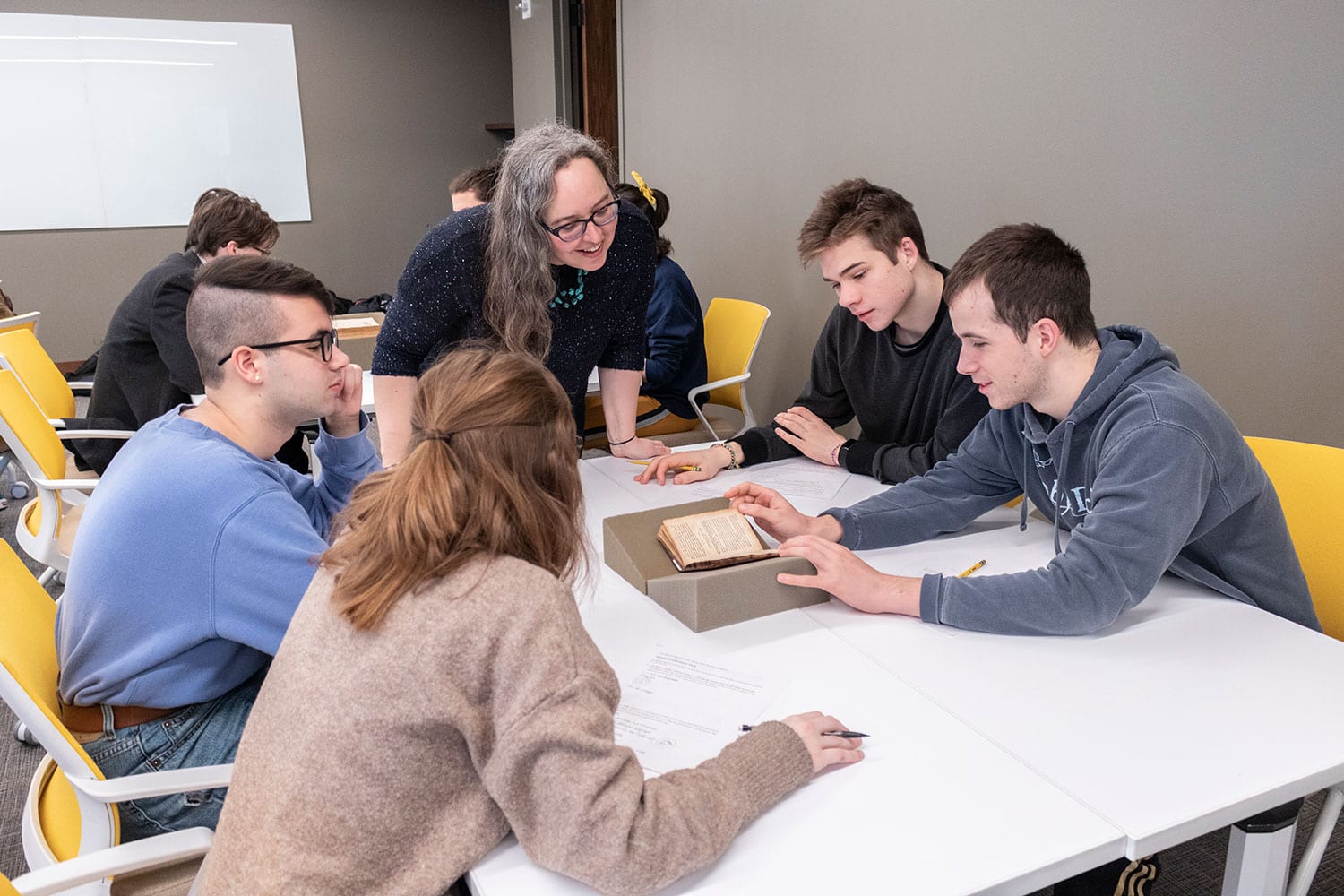Class Name: “Statistical Thermodynamics and Kinetics”
Taught By: Assistant Professor of Chemistry Clyde A. Daly Jr.
Says Daly:
I wanted to teach this course because it provides the true grounding to chemistry. The [Haverford chemistry] major is interesting in that we don’t expect students to have the math skills to understand the fundamental concepts when they start. So, we build a “house of chemistry knowledge,” and then, in their junior year, we lift up the house and place the foundation. This class and “Quantum Chemistry” are these foundation classes.
“Statistical Thermodynamics and Kinetics” offers a quantitative approach to the description and prediction of behavior in chemical systems. [We cover] introductory quantum mechanics and energy in molecules, statistical mechanics and energy partitioning, thermodynamics of molecules and larger systems, physical and chemical equilibrium, and chemical kinetics. Systems of interest range from relatively simple single molecules to complicated condensed-phase macromolecular assemblies; specific experimental examples of single-molecule observation, phase changes in lipids and liquid crystals, and observations of protein folding are discussed in the context of the course material.
At the end of this course, students should be able to nimbly work with, adjust, and simulate basic models for molecules and many different kinds of multi-particle systems, and to use those models to explain and analyze the microscopic/spectroscopic and macroscopic behavior of real chemical and physical systems. They will also be able to clearly enunciate the basic physical principles of thermodynamics, use these principles to derive and predict the behavior of important observable quantities, and explain and/or predict the time-dependent behavior of chemical systems using strategies of chemical kinetics. Also, they will be able to directly connect microscopic (molecule- or particle-level) behavior, including intermolecular and inter-particle interactions, and macroscopic (large-ensemble or aggregate material) quantities.
Learn about other courses offered by the Department of Chemistry.

